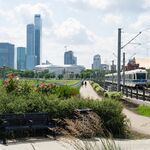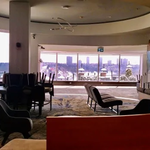I figured since I got @'d I would come here and reply. I was surprised that there was so much negative reaction to the video I made (and spent quite a bit of time on) if I'm honest, but I guess I figured it would be more openly received - after all I've made ones with much more dramatic suggestions for larger Canadian cities with more established transit systems.
I'll just say to this that I find the assertion that I just make a video with 0 research difficult to respond to. I have made videos about cities all around the world - including ones that I think many people are not even aware of having large transit networks like Bangkok, Valencia, and Santiago - but, its assumed that I draw the line at researching Edmonton when I make a video? I have family in Edmonton and I'm here on the local urban forum and have been for years - I'm just not sure where the sense that I just looked at a map and started drawing came from.
When you make videos about cities in numerous countries and you are constantly "context switching" or whatever sometimes you may not say the street names the way locals do - a lot of cities have street names with the format "X northwest" etc., simply spending time in the city is not going to make it so you forever pronounce things the local way.
With regard to there
not being passionate people - there's loads of people on here, and loads of people I've met IRL, I guess my idea of a lot isn't . . . correct?
I don't think the point of the video was to suggest that every idea that is currently proposed is bad!
I have an old friend who works on the catenary who has suggested otherwise, and based on the engineers I've talked to this is not the case - speed limit is much lower than that, the poles being closer together is inherent to the design.
Using different contact in tunnels is common, I haven't looked at it in the tunnel in quite some time, but I assumed it was semi-rigid (which of course still has a "wire") which is common around the world. Lower speeds are usually ok in a city centre tunnel with fairly tight spacings, and mounting is typically much more rigid.
The OCS definitely supports lower speeds without a support wire, the frequency of poles does not mitigate for that. Single wire design is common for
low speed trams and depots, without a support wire you are going to have lower allowable speeds - "At the other end of the scale, a tram depot may have just a single wire hung directly from insulated supports. As a pantograph passes along it, the wire can be seen to rise and fall." - the amount of tensioning possible through the supports is limited (it tends to largely come from the panto). Some good reading for those interested here:
http://www.railway-technical.com/infrastructure/electric-traction-power.html (Piers Connor is great)
Most land west of Sherwood park is industrial so you're going to be going past industry no matter what. Going from the south means not being able to have as fast of a right of way (or as nice of one for that matter) for the rest of the trip.
The high floor trains are indeed better suited for suburban trips - but that's not an arbitrary thing, the trains are literally capable of higher speeds (especially with upgraded suspension) and are substantially higher capacity, which I think are both pretty important considerations for any suburban service. Routing off of the rail row on the Capital Line is also very nice because it has probably the most flexibility and long term potential capacity of any above ground section of rail on the network.
Yes I am aware, I have a friend who did a bunch of planning work for Fort Sask. if Edmonton could get the price to build "LRT" down a single tracked line out there would not be unprecedented globally, loads of places in Europe have electric rail in similar contexts.
-------------------------------------------
I am sorry that folks seem to think I came in scattershot and without enough local knowledge (or I guess I didn't communicate that I am familiar with Edmonton, I've even made a number of videos on the region in the past). I'll stick to Toronto and Vancouver going forward. Ciao.





